by Jas Faulkner
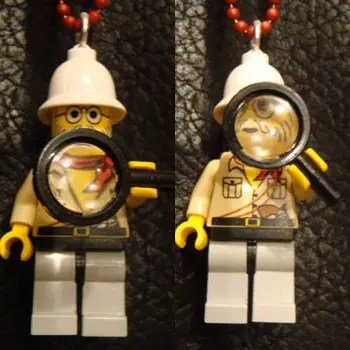
Many brick and mortar stores ceased to have anthropology sections some time in the mid to late 90s’ . One of the best anth sections in Nashville outside of the book store at Vanderbilt was at Davis-Kidd. D-K was an indie that stubbornly provided good books for graduates of programs at Western Kentucky, Middle Tennessee State, Vanderbilt and UTK years after the anth sections at the remaining big box stores were relegated to “social science’ shelves or co-opted by the rather academically anemic travel sections.
This is a pity, because most people either took a single course as an undergraduate elective or had some form of anthropology class on their wish lists and never managed to find the time or an open section. Those of us who majored in the subject often hear similar responses of regret about missed opportunities during university, especially when it came to working archaeological digs. I’ll cut to the chase about most teaching digs: Lying on the ground with a dental pick or a tooth brush while every bit of your body heat leeches into the soil or your backside bakes is not as glamorous as it sounds. Is it exciting to find you’ve been sitting on top of a habitation site or the rock you’ve been patiently digging around is actually a diagnostic projectile point? Oh, yes it is! I’ma cultural anthropologist who prefers subjects who can talk back to her and the first time I excavated something that was roughly eleven thousand years old, I got the same heart-pounding, drymouthed, weak-in-the-knees feeling as the bonegeeks. That nod from the PhD or PhD-to-be on the site meant everything at that moment.
What follows is a far from conclusive list of some books that will delight the frustrated Howard Carters and Margaret Meads in your life. Few of these are canonical for majors, they’re just good reads for the curious and those who still hold a lot of affection for the discipline.
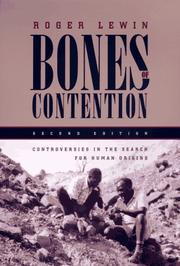 Bones of Contention: Controversies in the Search for Human Origins
Bones of Contention: Controversies in the Search for Human Origins
by Roger Lewin
1997 University of Chicago Press
366 pages
Most pop science books about evolution controversies focus on the continual struggle between young Earth biblical literalists and scientists who insist on empirical data based on fossil evidence and laboratory study. Lewin’s account of the continual exchange of girl-slaps between various Leakeys and Donald Johanson is a well researched romp through one of the more enduring rivalries in developmental anthropology. The result is equal parts National Geographic, Oscar Wilde, and Boris and Natasha versus Moose and Squirrel as the leading lights of the discipline compete in oh, so subtle ways while they smile for the cameras.
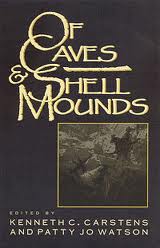 Of Caves and Shell Mounds
Of Caves and Shell Mounds
Kenneth Carstens and Patty Jo Watson, eds.
1996 University of Alabama Press
232 pages
No one has contributed more to southeastern karst (cave) prehistoric archaeology than the late Patty Jo Watson. Her legacy can be found in the tremendous amount of scholarship about early forest and cave dwellers in Kentucky that remains the as the foundation for current studies on the subject. Of Caves and Shell Mounds is one of her more accessible works for beginners and enthusiasts with little or no classroom training. In spite of the occasional dip into technical jargon, every essay in this slim volume is a reflection of the editors’ lively, engaging teaching style.
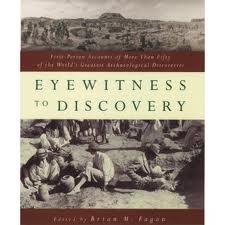 Eyewitness To Discovery: First Person Accounts to More Than Fifty of the World’s Greatest Archaeological Discoveries
Eyewitness To Discovery: First Person Accounts to More Than Fifty of the World’s Greatest Archaeological Discoveries
by Brian Fagan
1999 Oxford University Press
512 pages
It was hard to pick just one of Dr. Fagan’s books for this list. His writing style was often compared to Stephen Jay Gould. Like Dr. Gould, and Carl Sagan, another contemporary and fellow traveler, Brian Fagan was a proponent of scientific literacy and reason. His was the prominent voice of the discipline in both academia and popular discourse for almost three decades. To crack open any edition of “People of the Earth” or “In the Beginning” is to guarantee you will be lost for a good long while, turning pages to see who will turn up next as the prehistoric world unfolds before you.
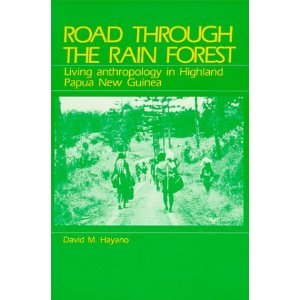 Road Through the Rain Forest: Living Anthropology in Highland Papua New Guinea
Road Through the Rain Forest: Living Anthropology in Highland Papua New Guinea
by David Hayano
1990 Waveland Press
162 pages
Waveland Press monographs are as much a part of the material culture of school as those squat little West Nutshell paperbacks are to law students. In account of his first attempt at complete immersion in a culture so very different from his own life in the US, David Hayano goes deep. He is unsparing in his descriptions of how he had to confront his own shortcomings and lack of preparation for what he would experience in the field. Before you pass on this, keep in mind that this is not a navel-gazing contemplation of spoiled first world visitors thrown in a deeply spiritual, but alien world. Hayano approaches his subject with wit and a deep sense of his own human frailties as he goes from an overconfident scholar to someone who realises he has as much to learn about himself as he does his subjects.
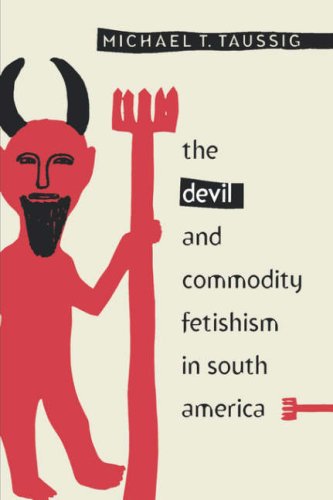 The Devil and Commodity Fetishism in South America
The Devil and Commodity Fetishism in South America
by Michael Taussig
1986/2010 University of North Carolina Press
320 pages
This is many anth student’s gateway to the work of Dr. Taussig. Taussig is one of those rare intellects who can connect the dots between disparate elements and make connections that reveal a surprising amount about a culture. In this study on the encroachment of capitalism on two indigenous groups in Columbia and Bolivia, Taussig examines the way concepts of good and evil are personified as their understanding of property and commerce evolves. The result is a lively book that inspire as smiles and few wince-worthy moments as the subject hits so close to home.
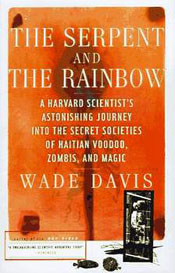 The Serpent and the Rainbow: A Harvard Scientist’s Astonishing Journey into the Secret Societies of Haitian Voodoo, Zombis and Magic
The Serpent and the Rainbow: A Harvard Scientist’s Astonishing Journey into the Secret Societies of Haitian Voodoo, Zombis and Magic
by Wade Davis
1997 Touchstone
306 pages
Forget the really bad movie from the 80s’. In the decades since its release, Davis has developed the ability to greet mentions of it with a raised brow and a rueful smile. What isn’t so easy to dismiss is this ripping yarn of a scientific detective story. Davis was sent on a pretty straightforward mission to discover an herbal curative and found himself embroiled with the byzantine politics of the Haitian healer community. Save this book for weekend/snow day reading. This is an “Oh my goodness, it can’t be 1:32 in the morning!” reads.
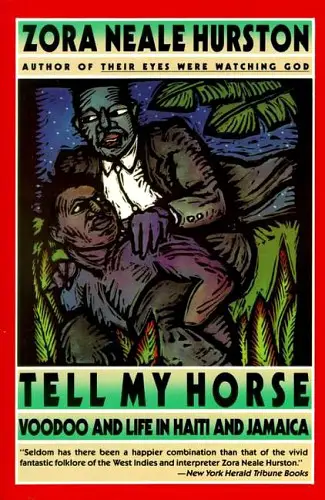 Tell My Horse: Voodoo and Life in Haiti and Jamaica
Tell My Horse: Voodoo and Life in Haiti and Jamaica
by Zora Neale Hurston
2008 Harper Perennial Modern Classics
336 pages
Hurston is lauded more as an author than a social scientist. Because of this, many casual readers of her works gloss over the fact that she was an alumnus of the first anthropology program in the US and studied under its founder, Franz Boas. Papa Franz was a big believer in participant-observation and encouraged his students to learn what they could about their subjects by experiencing life in their corner of the world. Hurston spent a lot of time cataloging and studying Africanist survivals in the southeastern US but she also did some field research in Haiti and Jamaica as an initiate to two different Voodoun groups. This beautifully written account of her research stands as a testimony to her intense love of her work as both a writer and anthropologist.
